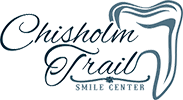A healthy mouth starts at home. Both children and adults should establish an oral hygiene routine that will keep their breath fresh, teeth strong, and gums healthy. The routine should include brushing, flossing, and rinsing. We’ll discuss these practices as well as other habits you can implement to maintain good oral health.
The best thing you can do for your oral health is regularly visit your dentist, which means visits every six months. Dr. Matthew L. Bridges in Duncan, OK is passionate about providing preventive dental care for patients of all ages. He’ll help you determine what you can add to your homecare regimen to help deter oral disease. For parents, Dr. Bridges provides tips and answers questions, so you can work together for the best result for your children.
Maintain a Healthy Smile at Home
Include these three essential steps into your daily oral hygiene routine:
- Brushing: Proper technique is extremely important. Start with a soft-bristled toothbrush and fluoride toothpaste. Use a circular motion to brush along the gumline, the back, front, and top of each tooth, and your tongue. Pay special attention to your back molars and any fillings or crowns. Brush for two minutes. Remember to replace your toothbrush at least every three months.
- Flossing: Most people avoid flossing altogether, but you shouldn’t! Flossing reaches the areas your toothbrush can’t. Use regular floss, dental floss holders, or interdental cleaning devices to remove plaque and food particles from between your teeth. Always move the particles away from the gum line. Floss every single day.
- Rinsing: Mouthwash offers a variety of benefits. It can reduce bad breath, prevent plaque buildup that leads to gingivitis, promote remineralization of enamel, and whiten teeth. Use an ADA-approved mouthwash or ask Dr. Bridges which mouthwash he recommends.
Healthy Eating
Foods and drinks with a high amount of processed sugar and other carbohydrates are one of the top causes of cavities. Changing your eating habits will benefit your oral health as well as your overall health.
We won’t ask you to completely avoid eating sweets and carbs, but there are foods you can add to your daily diet that will strengthen and clean your teeth. These include:
- Dairy products such as cheese, milk, and yogurt
- Leafy greens
- Lean proteins like chicken and fish
- Fibrous, low-sugar vegetables like carrots and celery
Of course, you should also make it a priority to substitute water for beverages such as sodas, sports drinks, and juices that eat away the protective enamel on your teeth.
Regular Dental Visits
According to the American Dental Association, you should visit the dentist at least twice a year. These visits are important because your dentist can detect oral health problems that you likely won’t spot at home. Symptoms of overall health issues such as diabetes, thyroid problems, heart disease, and osteoporosis commonly manifest in the mouth, so your dentist may be the first to detect signs of these conditions.
A regular dental cleaning will also deter cavities, gum disease, and tooth loss. Research shows that oral health is linked to overall health, so by reducing the potential for oral health problems, you will also reduce the likelihood of overall health problems.
In addition to visiting the dentist a least twice a year, you should schedule an appointment if you notice changes in your oral health, such as:
- Sensitive teeth
- Irritated or bleeding gums
- Persistent bad breath
- A toothache
- Difficulty chewing or swallowing
- Jaw pain
- Dry mouth
- A loose filling or crown
The First Step: Visit the Dentist
Our team at Chisholm Trail Smile Center would love to be a part of your journey towards great oral health. Visit Dr. Bridges soon for a checkup and cleaning, and to learn specifically how to improve your daily oral care routine.







